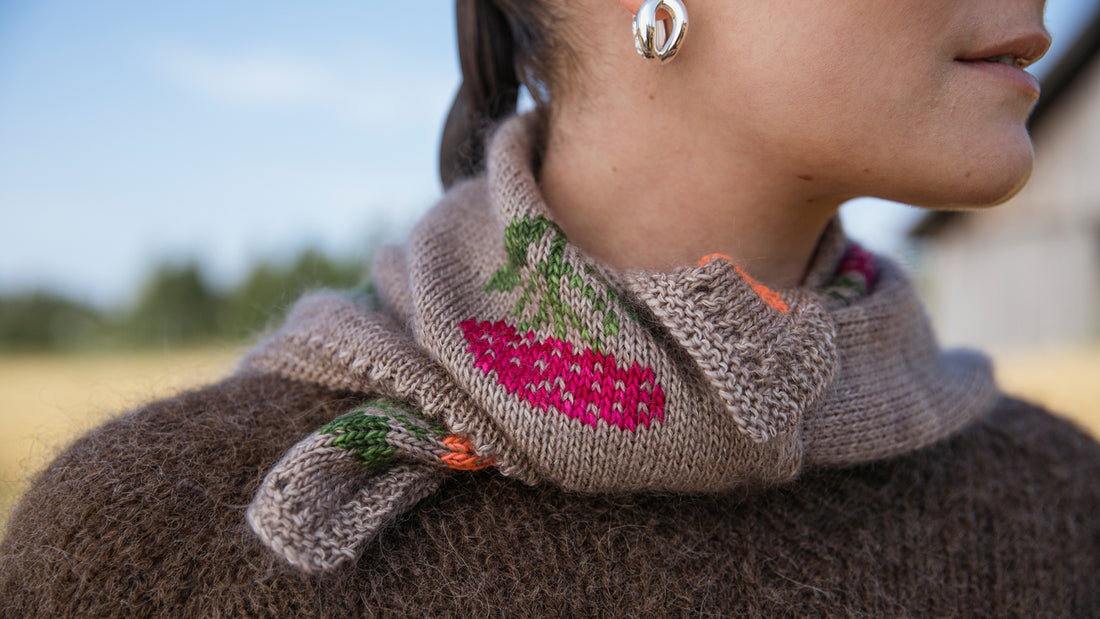The Magic of Swiss Darning (Duplicate Stitch)
Have you already had a chance to admire Dee Hardwicke's beautiful scarves in Cultivate: Knitting the Beauty of Nature? This collection, created together with Jonna Helin, includes 20 timeless knitting patterns — 15 scarves and five garments — and celebrates the beauty of everyday simplicity through knitting. The intricate-looking scarves make a lasting impression, but the true mastery of the work is in the fact that many of them are fairly easy to create using just one stitch!

Swiss Darning, also known as duplicate stitch, is a beautiful technique that adds a painterly effect to knitted designs. Unlike intarsia, it involves sewing over existing knit stitches. This not only adds eye-catching texture but also creates a subtle blending effect, much like watercolour painting, as hints of the original stitches show through the ones sewn on top.
In Cultivate, the scarves could be created either with intarsia or Swiss darning, as the charts are the same, but Dee's magical pieces encourage us to try painting with yarn. Here we've gathered step-by-steps into Swiss Darning.

If you are new to Swiss Sarning, the Embroidered Achillea scarf from Cultivate is a great pattern to start with as the motifs are relatively simple. No embroidery hoop is needed, all you need is a tapestry needle and some yarn. Work in small sections, starting from the bottom of a motif and moving side to side along a row.
Step-by-step instructions for Swiss Darning
Dee has provide us these easy step-by-step pictures for Swiss Darning. If you'd like to see more of this technique, she has created some great videos on her Instagram @deehardwicke for further tips!

Using a tapestry needle, bring the threaded needle up from the bottom of the first stitch, just below the “V”.

Pull the yarn through fully, then slide the needle behind the stitch above, catching both legs of the “V”.

Insert the needle back down through the bottom of the stitch where you began, thus covering your knitted stitch with the embroidery yarn.

Maintain a snug tension so the stitch isn’t too loose, yet not too tight either.

Bring your needle up through the bottom of the next stitch and repeat the process.

Ensure your needle always points in the direction you are working across the row.

If you need to skip more than two or three stitches before embroidering the next one, run your needle through the back of a few stitches to avoid creating long strands on the back that could snag. Make sure to weave in the ends on the go.

Set aside time to work section by section, enjoying the process rather than rushing to the finish. Keep your stitches snug over the knitted stitch below. Don’t worry about small variations—just as writing or painting reflects your unique style, your stitching will develop its own distinctive character, making the work truly yours.
We can't wait to see all your creations!
Learn more:



2 comments
Loved this demo I’ve so many knits I’d love to embellish. Thankyou for the video …it’s given great inspiration and design techniques too. 💕
Merci